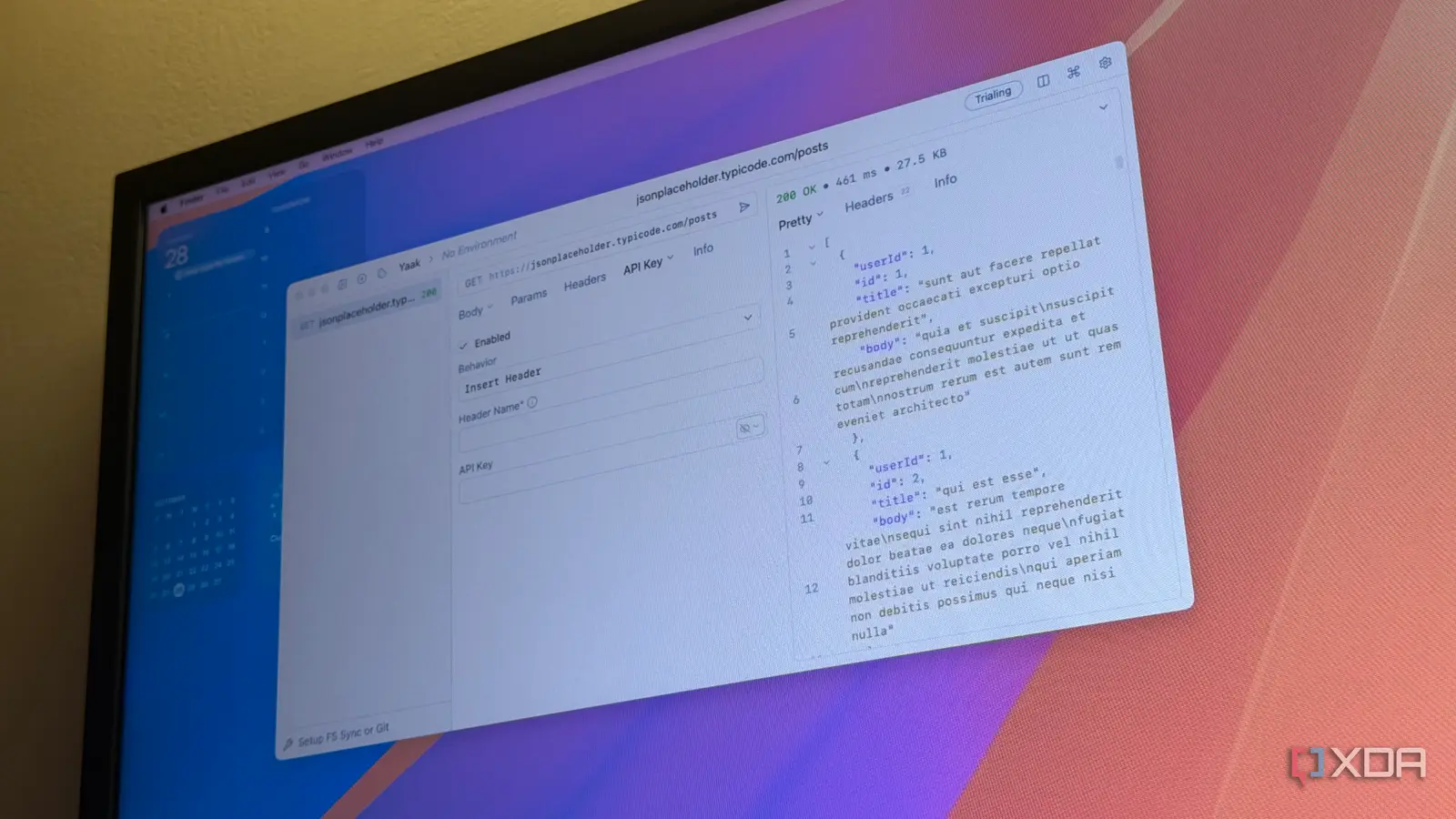Copyright XDA Developers

Developers of all scale work with APIs all day long. Whether building APIs, debugging them, or integrating them into an existing project. You've probably come across APIs when trying to connect multiple self-hosted tools as well. Now, I'm no expert, but my previous experience with using Postman for API testing has been anything but easy. The feature set is complex, and while Postman can accomplish a lot, it can be overkill for users with simpler needs. Personally, I needed something much simpler, faster, and built for people who just needed to test out APIs quickly. Yaak is the perfect tool for that. This open-source tool isn't a full-fledged API platform or collaboration suite. Instead, Yaak takes a simpler approach to calling APIs, authenticating them, and integrating with Git. This focus and simplicity are what make it the perfect fit for smaller developers. A developer-first approach to API testing Local-first by design, with solid Git integration Prima facie, Yaak doesn't take on Postman feature for feature. Instead, it's built around a clear idea of giving developers a fast, private, and git-friendly way to work with APIs. The app is built around local use and doesn't need any accounts, cloud sync, or background services. The result is an app entirely focused on sending API requests and viewing responses. Yaak makes some smart decisions around how it approaches API testing. Workspaces are stored as folders on your computers, and each API request is also saved as a readable file. This setup allows you to version control your API tests right alongside your source code. Moreover, you can easily commit and push them to GitHub just like any other file. This Git-based workflow fits naturally into the standard workflows that most developers already use to manage projects. It also makes it much simpler to track changes and updates, review edits, or roll back configurations through Git. Of course, it's all optional. As Yaak stores everything locally, you don't need to worry about sensitive data being shared or uploaded anywhere. Compared to Postman, which has evolved into a comprehensive suite of tools for documentation, monitoring, and automation, Yaak takes a simpler and more practical approach. It focuses on the essentials like calling APIs, authenticating requests, and viewing the results. It supports REST APIs, GraphQL, gRPC, WebSockets, and Server Sent Events all within the same interface. This allows you to test endpoints and, within the same interface, keep things streamlined and consistent. Getting started is as simple as entering an API URL in the URL box at the top, selecting the kind of request you want to send, and hitting send. For example, sending a GET request will get you a standard response from the API identifying all the headers being used. That same simple interface also allows you to establish built-in environment variables, making it easy to switch between development and production setups, and use secure token storage using your operating system's built-in keychain. These are small, yet thoughtful additions that make everyday use cases smoother and more efficient for professional developers. While it's beyond my ability to test out Yaak's built-in plugin system, what it does offer is the ability to extend the software's capabilities for highly specific use cases. These plugins, written in Node.js or TypeScript, allow you to create custom authentication steps, modify response handling, or integrate unique workflows. A lightweight alternative to Postman Yaak is built for speed, security, and simplicity Postman's biggest strength is its versatility, but that's also what makes it fairly bloated for simpler use cases. While it offers everything from monitoring to automated testing and shared workspaces, all great for large teams, it can be unnecessarily complicated for smaller developers who just need to send requests and debug responses. Yaak is just built for speed and simplicity. Installation is simple and straightforward, and the app is available on everything from macOS to Windows and Linux, making it a solid choice for developer teams working across platform ecosystems. Security is another core focus, as all your data is stored locally and uses the operating system's keychain to handle tokens and passwords. There's no external sync or telemetry needed, making it a solid choice for developers working on private APIs or restricted projects. Finally, the open-source nature of Yaak is another advantage. You can view the source code or build your own version from scratch. Moreover, the app is free to use if you're just trying it out or for students. You only need a commercial license if you are using it for commercial purposes. Yaak also makes it easy for developers to migrate from Postman with its support for Postman, Insomnia, and OpenAPI collections. This makes migrations seamless. You can bring your existing requests, environment,s and variables over without having to rebuild them from scratch. Find the right tool for your workflow



